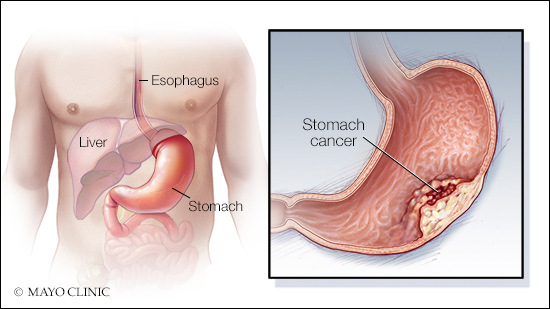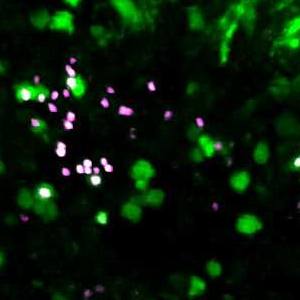-
Expert Alert: What’s new in gastric cancer treatment and research

ROCHESTER, Minn. ― November is Gastric Cancer Awareness Month. Gastric cancer, also known as stomach cancer, was the sixth most common cancer in 2020, with 1.09 million new cases, according to the World Health Organization. It was the fifth most common cause of cancer death in 2020. Gastric cancer is common in certain parts of the world, including South America and Asia.
Gastric cancer is an abnormal growth of cells that begins in the stomach. It can affect any part of the stomach, but in most of the world, gastric cancers form in the main part of the stomach.
Mohamad Sonbol, M.D., a Mayo Clinic medical oncologist, shares five things to know about the current state of diagnosis, screening and treatment for gastric cancer:
- Endoscopy is usually the initial step in diagnosing gastric cancer. It allows physicians to diagnose, stage and treat some cancers at early stages. Using the endoscope, they can go in and remove localized and superficial abnormal growths. If physicians detect gastric cancer, they use a CT and positron emission tomography to scan for further staging.
- Unlike in East Asia, where gastric cancer is more common, screening for gastric cancer is not recommended in the general population. However, screening protocols are in place for people at higher risk. Risk factors include obesity, smoking, alcohol consumption and family history.
- Surgery is an option for patients whose cancer has not spread and those who have cancer that can be removed in surgery. Surgery is the only curative approach for patients with localized or locally advanced gastric cancer. Other treatments, such as systemic therapy and radiation, maximize the chance of cure and lower the risk of the cancer returning.
- New therapeutic options are available for gastric cancer. The Food and Drug Administration approved the combination of chemotherapy with nivolumab, an immunotherapeutic drug, in metastatic gastric adenocarcinoma. Fam-trastuzumab deruxtecan-nxki, which is administered as an infusion, is now an option for patients with HER2-positive metastatic gastric cancer.
- Some immunotherapeutics are standard care and some are in studies. Chemotherapy kills cells all over the body, while immunotherapy wakes up the immune system to fight the cancer. In general, chemotherapy works for a while and then stops. When immunotherapy works, it is usually for a longer time. Which regimen to choose depends on the different targets on the cancer cells.
"I tell patients who have been recently diagnosed with gastric cancer that there is hope," Dr. Sonbol says. "We now have many more treatment options than before."
Dr. Sonbol is available to discuss research and gastric cancer, including:
- "Maintenance Therapy in First-Line Gastric and Gastroesophageal Junction Adenocarcinoma: A Retrospective Analysis." This article was published in Frontiers in Oncology.
- "Trifluridine/Tipiracil Plus Ramucirumab in Gastric Cancer." This article was published in "The Lancet Gastroenterology & Hepatology."
Journalists: Broadcast-quality sound bites with Dr. Sonbol are available in English and Arabic in the downloads at the end of the post. Please courtesy: "Mayo Clinic News Network."
###
About Mayo Clinic
Mayo Clinic is a nonprofit organization committed to innovation in clinical practice, education and research, and providing compassion, expertise and answers to everyone who needs healing. Visit the Mayo Clinic News Network for additional Mayo Clinic news. For information on COVID-19, including Mayo Clinic's Coronavirus Map tracking tool, which has 14-day forecasting on COVID-19 trends, visit the Mayo Clinic COVID-19 Resource Center.
Media contact:
- Rhoda Madson, Mayo Clinic Public Affairs, newsbureau@mayo.edu







